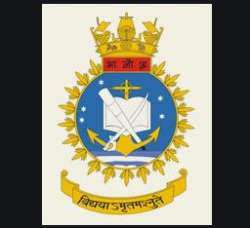Navy to merge functions of workforce to tide over crisis
Indian Navy, the leanest of the three armed forces of the country, is contemplating restructuring its organisational setup to cater to the advancements in its military and technical systems.

Indian Navy, the leanest of the three armed forces of the country, is contemplating restructuring its organisational setup to cater to the advancements in its military and technical systems.
The re-orientation is proposed as the force is acquiring systems with super-special technologies equipped on platforms, including new ships, frigates and submarines. As per a senior Navy official, the re-orientation will result in functional re-organisation and optimal manning of its platforms by efficiently utilising the lean manpower at its disposal.
As per Navy sources, the proposal was discussed at length at the recently concluded Navy Commander's Conference in New Delhi.
At present, the Navy's staff strength is 56,000, which includes 5,600 officers. In comparison, the staff strength of the Air Force is 1.5 lakh and the Army, 13 lakh.
"Discussions are underway to develop an organisational structure based on the Operator-Maintainer concept of the US Navy. In this concept, the operator of any system on a particular platform is technically qualified to undertake the first line of maintenance of that system," said a senior Navy official.
However, given the technical complexities involved in operation of new systems on board any platform, technical knowledge is required.
"To acquire crew with the requisite technical knowledge, the Navy is contemplating on altering their training methodologies and even recruiting staff with the necessary education backgrounds," said the official.
Indian ships typically have two sets of crew. There are sets of 'operators' to run systems, like radars, a fire control systems or guns. There are separate sets of 'maintainers' whose services are called in when any of the systems malfunction. The 'operator-maintainer' concept would mean overlapping of technically complex functionalities.
As per experts, Russian ships too follow the operator-maintainer concept. Russian platforms were witness to massive overcrowding when they were inducted into the Indian Navy because these were designed to accommodate only a limited number of persons. The Royal Navy of the UK has tried this system on its ships too.
"In the operator-maintainer concept, each person has to be technically qualified because maintaining a modern platform is complex. There are two issues involved for India in adopting this system. The existing crew has to be trained with much higher level of technical competence.
After merging of functions, leaves available to any staff, which is around three months a year, have to be curtailed. Another issue pertains to the costs involved in training the staff. There has been a trend among officials quitting the Navy after 15 years of service for lucrative jobs in other sectors of the economy," former Navy chief Admiral Arun Prakash told IANS.